
Holden Caulfield: Egotistical Whiner or Melancholy Boy Genius?
From Jesus-Figure to Incestuous Impulses, 13 Critics Weigh In
Here are some things we’ve been talking about in the Literary Hub office lately: Is Holden Caulfield a tragic hero or an unbearable whiny teen? Is he misunderstood? Is he relevant to youth today? Is The Catcher in the Rye even any good? Does it matter, if it has meant something to generations of readers? Do we only like it because our parents did? Why do we talk about it so much more than Nine Stories, which is objectively superior? (To each his own, is my take—but I, having never liked The Catcher in the Rye or its deeply phony narrator, also don’t think we should keep things in the canon just because they’ve always been there.)
If nothing else, we can all at least agree that Holden Caulfield is still (though decreasingly) a cultural touchstone in this country, in part because parents keep giving the book to their children and in part because so many students are still required to read it in school. Accordingly, over the years there have been hundreds, and maybe thousands, of critical essays written about Salinger’s work in general, and The Catcher in the Rye in particular, and Holden Caulfield in even more particular. The critics, much like the population at large, do not come to much of a consensus. For instance, some have compared Holden to Jesus. Some, on the other hand, have argued that the book is about his desire to have sex with his little sister. Some consider Holden a model for American youth. Some fear he is its downfall. We will all have to decide for ourselves, but for a little guidance, below you can look through what some writers and critics have said about Holden, organized roughly from most glowing to least impressed.
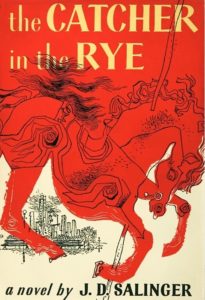
Frederick L. Gwynn and Joseph L. Blotner, in The Fiction of J. D. Salinger:
After the reader recovers from the releasing of Holden’s invective (e.g., “Her son was doubtless the biggest bastard that ever went to Pencey, in the whole crumby history of the school”) and of his exposé of phoniness (e.g., a Radio City Christmas complete with what has been identified as the movie of James Hilton’s Random Harvest), he goes on to appreciate the pathos of Holden’s loneliness and frustration.
But nervous cynicism and neurosis are not enough for fiction in depth, and the next step for a reader should be to realize that Holden Caulfield is actually a saintly Christian person (there is no need to call him a Christ-figure). True, he has little notion of the love of God, and he thinks that “all the children in our family are atheists.” But (1) he himself never does a wrong thing: instead of commandments, Holden breaks only garage windows (when his brother dies), and the no-smoking rule in the Pencey dormitory. (2) He sacrifices himself in a constant war against evil, even though he has a poignantly Manichean awareness of its ubiquity (“If you had a million years to do it in, you couldn’t rub out even half the [ubiquitously scrawled dirty words] in the world.”) And more importantly, (3) his reward is to understand that if one considers humanity, one must love it. The text for Holden’s behavior is his insistence — oddly enough, to his Quaker friend Childs on absolute primitive Christianity: “Jesus never sent old Judas to Hell. . . . I think any one of the Disciples would’ve sent him to Hell and all—and fast, too—but I’ll bet anything Jesus didn’t do it.
For Jesus and Holden Caulfield truly love their neighbors, especially the poor in goods, appearance, and spirit.
Verdict: Holden’s so good, he’s basically Jesus.
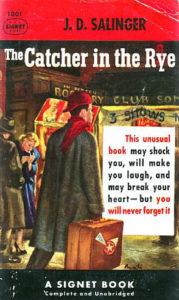
Tobias Wolff, in a 2008 interview with NPR:
[Holden]’s a very, very funny fellow. And he’s very acute in spotting phonies. The problem with Holden is that, to him, everyone, after a while, seems phony. As funny the book as it is, and reading through it again recently, I found it devastatingly sad.
. . .
His younger brother who he has idolized for his innocence -the way he now does his sister Phoebe – has died. And he ruminates on the – on going to his grave and being caught in a downpour and thinking of leaving his brother there underground in this terrible day. And later, he himself is walking along the street in New York. And it should be festive. It’s around Christmastime. The shoppers are out. And he is broken into a sweat. Every time he steps off the curb, he thinks I’m going to go down and down forever. No one will ever see me again. This kind of calls up that image of his brother in his grave. And he starts praying to his brother – Allie, don’t let me disappear. Don’t let me disappear. There’s such terror there. The humor that has sustained so much of this novel begins to unravel at the end and you’re left with this naked soul in pain and in conflict. Finally, you see not with the world but with himself.
. . .
When I first read it, I felt as if [Holden was] a confederate of mine, you know, a teammate in this skepticism about the worthiness of adult life, and now I look at him, in a way, like his old teacher, Mr. Antolini, who pats his head while he’s asleep. Then Holden wakes up from that and imagines that the man has made a pass at him he can’t even accept that, that avuncular affection that the man is overcome by. And I have that avuncular affection for Holden and I have a degree of sorrow, really, that I couldn’t possibly have felt at that time.
Verdict: Our Great American Teenager.
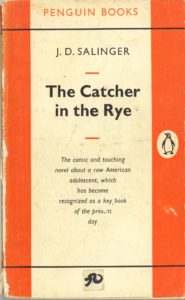
William Faulkner, in a 1958 address to the English Club of the University of Virginia:
I have not read all the work of this present generation of writing. I have not had time yet. So I must speak only of the ones I do know. I am thinking now of what I rate the best one, Salinger’s Catcher in the Rye, perhaps because this one expresses so completely what I have tried to say. A youth, father to what will—must—someday be a man, more intelligent than some and more sensitive than most, who—he would not even have called it by instinct because he did not know he possessed it because God perhaps had put it there, loved man and wished to be a part of mankind, humanity, who tried to join the human race and failed. To me, his tragedy was not that he was, as he perhaps thought, not tough enough or brave enough or deserving enough to be accepted into humanity. His tragedy was that when he attempted to enter the human race, there was no human race there. There was nothing for him to do save buzz, frantic and inviolate, inside the glass wall of his tumbler, until he either gave up or was himself, by himself, by his own frantic buzzing, destroyed.
Verdict: Holden as tragic hero.
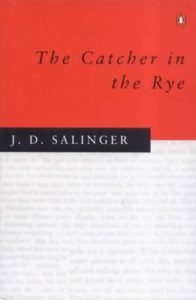
Louis Menand, in “Holden Caulfield at Fifty“:
Supposedly, kids respond to The Catcher in the Rye because they recognize themselves in the character of Holden Caulfield. Salinger is imagined to have given voice to what every adolescent, or, at least, every sensitive, intelligent, middle-class adolescent, thinks but is too inhibited to say, which is that success is a sham, and that successful people are mostly phonies. Reading Holden’s story is supposed to be the literary equivalent of looking in a mirror for the first time. This seems to underestimate the originality of the book.
. . .
Holden talks like a teenager, and this makes it natural to assume that he thinks like a teenager as well. But like all the wise boys and girls in Salinger’s fiction—like Esmé and Teddy and the many brilliant Glasses—Holden thinks like an adult. No teen-ager (and very few grownups, for that matter) sees through other human beings as quickly, as clearly, or as unforgivingly as he does. Holden is a demon of verbal incision. . . .
”You had to feel sort of sorry for her, in a way.” The secret to Holden’s authority as a narrator is that he never lets anything stand by itself. He always tells you what to think. He has everyone pegged. That’s why he’s so funny. But The New Yorker’s editors were right: Holden isn’t an ordinary teenager—he’s a prodigy. He seems (and this is why his character can be so addictive) to have something that few people ever consistently attain: an attitude toward life.
. . .
Holden, after all, isn’t unhappy because he sees that people are phonies; he sees that people are phonies because he is unhappy. What makes his view of other people so cutting and his disappointment so unappeasable is the same thing that makes Hamlet’s feelings so cutting and unappeasable: his grief. Holden is meant, it’s true, to be a kind of intuitive moral genius. (So, presumably, is Hamlet.) But his sense that everything is worthless is just the normal feeling people have when someone they love dies. Life starts to seem a pathetically transparent attempt to trick them into forgetting about death; they lose their taste for it.
Verdict: Holden as sorrow king; not a mirror but a model.
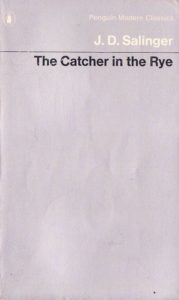
Alfred Kazin, from “J. D. Salinger: Everybody’s Favorite,” 1961:
I am sorry to have to use the word “cute” in respect to Salinger, but there is absolutely no other word that for me so accurately typifies the self-conscious charm and prankishness of his own writing and his extraordinary cherishing of his favorite Glass characters.
Holden Caulfield is also cute in The Catcher in the Rye, cute in his little-boy suffering for his dead brother, Allie, and cute in his tenderness for his sister, “Old Phoebe.” But we expect that boys of that age may be cute—that is, consciously appealing and consciously clever. To be these things is almost their only resource in a world where parents and schoolmasters have all the power and the experience. Cuteness, for an adolescent, is to turn the normal self-pity of children, which arises from their relative weakness, into a relative advantage vis-à-vis the adult world. It becomes a role boys can play in the absence of other advantages, and The Catcher in the Rye is so full of Holden’s cute speech and cute innocence and cute lovingness for his own family that one must be an absolute monster not to like it.
Verdict: Cute.
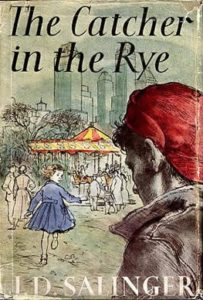
Ihab Hassan, in “J. D. Salinger: Rare Quixotic Gesture,” 1961:
On the surface, Holden Caulfield is Salinger’s typical quixotic hero in search, once again, of the simple truth. Actually, Holden is in flight from mendacity rather than in search of truth, and his sensitivity to the failures of the world is compounded with his self-disgust. In comparison with his dear, dead brother, Allie, a kind of redheaded saint who united intelligence and compassion as no other member of the family could, setting for all a standard of performance which they try to recapture, Holden seems intolerant, perhaps even harsh. The controlling mood of the novel—and it is so consistent as to be a principle of unity—is one of acute depression always on the point of breaking loose. But despair and depression are kept, throughout, in check by Holden’s remarkable lack of self interest, a quality of self-heedlessness which is nearly saintly, and his capacity to invoke his adolescent imagination, to “horse around,” when he is most likely to go to pot. These contrary pressures keep the actions of the novel in tension and keep the theme of sentimental disenchantment on the stretch; and they are sustained by a style of versatile humor.
. . .
Holden, of course, is not in the least cynical; nor is he blind except to part of the truth which he can otherwise entertain so steadily. Still, there are those who feel that the novel accords no recognition to its hero and that it fails to enlist our sense of tragedy. The lack of recognition, the avoidance of conversion and initiation, is almost as inherent in the structure of the novel as it is consonant with the bias of the American novel of adolescence. . . The partial blindness of Holden, which has been correctly attributed to Holden’s juvenile impatience with the reality of compromise, is made more serious by Salinger’s failure to modify Holden’s point of view by any other. . . There is also some danger that we may be too easily disarmed by the confessional candor of Salinger’s novel. When Holden says time and time again, “I swear to God I’m crazy,” the danger is equally great in taking Holden at his word as in totally discounting his claim. Holden does succeed in making us perceive that the world is crazy, but his vision is also a function of his own adolescent instability, and the vision, we must admit, is more narrow and biased than that of Huck Finn, Parson Adams, or Don Quixote. It is this narrowness that limits the comic effects of the work. Funny it is without any doubt, and in a fashion that has been long absent from American fiction. But we must recall that true comedy is informed by the spirit of compromise, not intransigence; Huck Finn and Augie March are both, in this sense, closer to the assumption of comedy than Holden Caulfield.
This once understood, we can see how The Catcher in the Rye is both a funny and terrifying work—traditional distinctions of modes have broken down in our times—a work full of pathos in the original sense of the word. But suffering is a subjective thing, and the novel’s sly insistence on suffering makes it a more subjective work than the two novels which relate the adventures of Huck Finn and Augie March. Adventure is precisely what Holden does not endure; his sallies into the world are feigned his sacrificial burden, carried with whimsey and sardonic defiance, determined by his fate. The fate is that of the American rebel-victim.
Verdict: Not blind, nor cynical, just an adolescent, American rebel-victim.
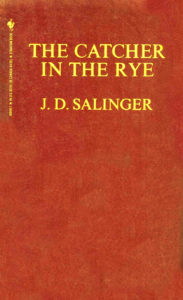
Howard Bloom, in his introduction to J.D. Salinger’s The Catcher in the Rye:
Rereading The Catcher in the Rye seems to me an aesthetically mixed experience—sometimes poignant, sometimes mawkish or even cloying. Holden’s idiom, once established, is self-consistent, but fairly limited in its range and possibilities, perhaps too limited to sustain more than a short story.
And yet Holden retains his pathos, even upon several rereadings. . . . Holden is seventeen in the novel, but appears not to have matured beyond thirteen, his age when Allie died. Where Holden’s distrust of adult language originates, Salinger cannot quite tell us, but the distrust is both noble and self-destructive. . . Faulkner remarked that Holden’s dilemma was his inability to find and accept an authentic mentor, a teacher or guide who could arouse his trust. The dilemma, being spiritual, hurts many among us, and is profoundly American. Holden speaks for our skepticism, and for our need. That is a large burden for so fragile a literary character, and will turn out eventually to be either aesthetic salvation for The Catcher in the Rye, or a prime cause for its dwindling down to the status of a period piece.
Verdict: Let’s wait and see.
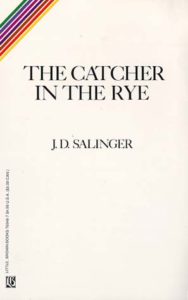
Maxwell Geismar, in American Moderns: From Rebellion to Conformity, 1958:
[T]he later sections of the narrative are simply an episodic account of Holden Caulfield’s “lost week end” in New York City which manages to sustain our interest but hardly deepens our understanding.
There are very ambiguous elements, moreover, in the portrait of this sad little screwed-up hero. His urban background is curiously shadowy, like the parents who never quite appear in the story, like the one pure adolescent love affair which is now “ruined” in his memory. . . Jut as the hero’s interest in the ancient Egyptians extends only to the fact that they created mummies, so Salinger’s own view of his hero’s environment omits any reference to its real nature and dynamics.
. . .
The only real creation (or half-creation) in this world is Holden Caulfield himself. And that “compassion,” so much praised in the story, and always expressed in the key phrase, “You had to feel sorry”—for him, for her, for them—also implies the same sense of superiority. If this hero really represents the nonconformist rebellion of the Fifties, he is a rebel without a past, apparently, and without a cause.
Verdict: Needs fleshing out.
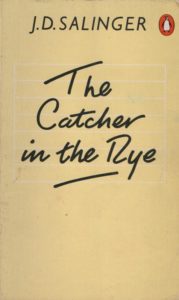
Warren French on “Holden’s Search for Tranquility”:
Those who find the book nothing more than a satirical attack upon the “phoniness” that irritates Holden’s condition are probably as disturbed as the boy himself; for—as Marc Rosenberg points out—Holden suffers because of an undisciplined hypersensitivity. The most common complaint that cooler and supposedly wiser heads like Ernest Havemann level at the novel is that Holden is himself guilty of all the things that make him call others “phony.” As Christopher Parker admits, the charge is absolutely true. In the opening chapters of the novel, Salinger strains to make it clear that Holden does precisely what he objects to other people’s doing. . . There is no point in multiplying examples, Holden obviously fails to see that his criticisms apply to himself. If, however, we think that his failure to practice what he preaches invalidates his criticisms, we fall into an argumentum ad hominum—we cannot justify our shortcomings by pointing the finger of scorn at our critics, especially if you do not wish to admit that we are as sick as they are. Like many sensitive but immature people, Holden is not yet well enough in control of his faculties to see the application of his strictures to himself . . . Salinger is not offering Holden to the world as an example of what it should be. If those who think that Holden could pull himself together if would just “try” are as insensitive as the people who fail Holden in the novel, those who make a martyr of Holden are victims of the same immature hypersensitivity that he is. Both make the mistake of supposing that the novel is what Ernest Jones calls “a case history of all of it.” It is not . . . The popularity of the novel suggests, however, that fully literate youth in our society finds it especially easy to identify with Holden.
Verdict: He does suck, but that’s kind of the point?

John W. Aldridge, in In Search of Heresy: America, Literature in an Age of Conformity, 1956:
The innocence of Mr. Salinger’s Holden Caulfield . . . is a compound of urban intelligence, juvenile contempt, and New Yorker sentimentalism, and the only challenge it begs for, the only challenge it has left to beg for, is the challenge of the genuine, the truly human, in a world which has lost both the means of adventure and the means of love. But it is in the nature of Holden’s dilemma, his spiritual confinement in this world, that he lacks a concrete basis, can find no concrete embodiment, for the ideal against which he judges, and finds wanting, the life around him. He has objects for his contempt but no objects other than his sister for his love . . . He is forced, consequently, simply to register his contempt, his developing disillusionment; and it is inevitable that he should seem after a time to be registering it in a vacuum, for just as he can find no concrete equivalent in life for the ideal which he wishes life to embody, so the persons on whom he registers his contempt seem inadequate to it and unjustly accused by it. The boorish prep school roommate, the hypocritical teacher, the stupid women in the Lavender Room, the resentful prostitute, the conventional girl friend, the bewildered cab driver, the affected young man at the theater, the old friend who reveals that his interest in Holden is homosexual—these people are all truly objectionable and deserve the places Holden assigns them in his secret hierarchy of class with its categories of phonies, bores, deceivers, and perverts. But they are nonetheless human, albeit dehumanized, and constitute a fair average of what the culture affords. They are part of the truth which Holden does not see and, as it turns out, is never able to see—that this is what one part of humanity is: the lies, the phoniness, the hypocrisy are the compromises which innocence is forced by the world to make. This is the reality on which Holden’s illusion is finally broken, but no recognition follows, and no conversion. He remains at the end what he was at the beginning—cynical, defiant, and blind.
And as for ourselves, there is identification but no insight, a sense of pathos but not of tragedy. It may be that Mr. Salinger made the most of his subject, but his subject was not adequate to his intention, just as Holden’s world is not adequate to his contempt, and that is probably because it does not possess sufficient humanity to make the search for humanity dramatically feasible.
Verdict: “Cynical, defiant, and blind,” from beginning to end.
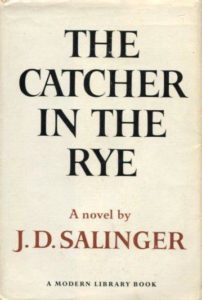
Jonathan Yardley, in “J. D. Salinger’s Holden Caulfield, Aging Gracelessly“:
[When I first read The Catcher in the Rye] I couldn’t see what all the excitement was about. I shared Caulfield’s contempt for “phonies” as well as his sense of being different and his loneliness, but he seemed to me just about as phony as those he criticized as well as an unregenerate whiner and egotist. It was easy enough to identify with his adolescent angst, but his puerile attitudinizing was something else altogether.
That was then. This is half a century later. . . Rereading The Catcher in the Rye after all those years was almost literally a painful experience: The combination of Salinger’s execrable prose and Caulfield’s jejune narcissism produced effects comparable to mainlining castor oil.
The novel is commonly represented as an expression of adolescent cynicism and rebellion—a James Dean movie in print—but from first page to last Salinger wants to have it both ways. Holden is a rebel and all that—”the most terrific liar you ever saw in your life,” “probably the biggest sex maniac you ever saw”—but he’s a softy at heart. He’s always pitying people—”I felt sorry as hell for him, all of a sudden,” “You had to feel a little sorry for the crazy sonuvabitch,” “Real ugly girls have it tough. I feel so sorry for them sometimes”—and he is positively a saint when it comes to his little sister, Phoebe. He buys a record for her, “Little Shirley Beans,” and in the course of moping around Manhattan he does something clumsy that gives him the chance to show what a good-hearted guy he really is.
. . .
Indeed a case can be made that The Catcher in the Rye created adolescence as we now know it, a condition that barely existed until Salinger defined it. He established whining rebellion as essential to adolescence and it has remained such ever since.
Verdict: “Unregenerate whiner and egotist,” probably ruined the category of adolescence forever.
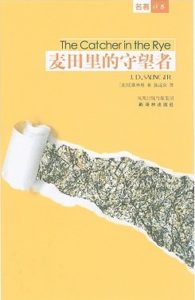
T. Morris Longstreth, reviewing the novel in the Christian Science Monitor, 1951:
Twice there is a reminder of Shakespeare. It has comes near Macbeth’s despairing definition of life, “a tale told by an idiot . . . signifying nothing.” And Salinger has taken a more sensitive than normal child, just as Shakespeare took a more than normally sensitive man in Hamlet. It could be debated long just how irrational is Holden Caulfield, as likewise, Hamlet.
Holden, who is the clown, villain, and even moderately, the hero of this tale, is asked not to return to his school after Christmas. This is his third expulsion and he cannot endure to face his parents, so he hides out in New York, where his conduct is a nightmarish medley of loneliness, bravado, and supineness. Jerome David Salinger is an extremely skillful writer, and Holden’s dead-pan narrative is quick-moving, absurd, and wholly repellent in its mingled vulgarity, naïveté, and sly perversion.
. . .
Holden Caulfield is so super-sensitive to others’ faults that he has no friends, among boys at least. He is as unbalanced as, a rooster on a tightrope. He asks a girl to elope with him and then calls her names. He suffers from loneliness because he has shut himself away from the normal activities of boyhood, games, the outdoors, friendship.
He is capable of love, for a dead brother, for a lively younger sister, for all young things, as his explanation of the book’s title makes clear – an oddly psychopathic one, it must be noted. (For Holden has mistaken the words of “Coming Through the Rye,” as “If a body catch a body,” and fancies himself the heroic rescuer of children in danger of plunging over a cliff in the field.)
But he is also capable of wholesome revulsion from contact with the human dregs, and impulsively seeks a kind of absolution by offering help to others. He hates what is wrong with the movies, and in the end he forgets himself and his hoped-for escape into freedom to help his sister. He is alive, human, preposterous, profane and pathetic beyond belief.
Fortunately, there cannot be many of him yet. But one fears that a book like this given wide circulation may multiply his kind—as too easily happens when immortality and perversion are recounted by writers of talent whose work is countenanced in the name of art or good intention.
Verdict: Keep him away from the kids, lest he infect them with his pathetic perversion.
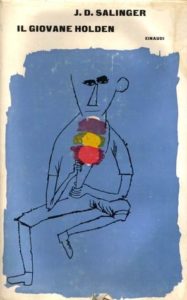
James Bryan, “The Psychological Structure of The Catcher in the Rye“:
I am suggesting that the urgency of Holden’s compulsions, his messianic desire to guard innocence against adult corruption, for example, comes of a frantic need to save his sister from himself. It may be Phoebe’s face that Holden unconsciously fears may be desecrated; hence the desire to protect Phoebe’s face that compels his fascination with mummification. And it may be Phoebe who provokes his longing for stasis because he fears that she may be changed—perhaps at his own hand. Holden’s association of sex with death surely points to some sexual guilt—possibly the fear that he or Phoebe or both may “die” if repressed desires are acted out.
Verdict: We don’t give Holden enough credit for wanting to sleep with his sister.
Emily Temple
Emily Temple is the managing editor at Lit Hub. Her first novel, The Lightness, was published by William Morrow/HarperCollins in June 2020. You can buy it here.



















